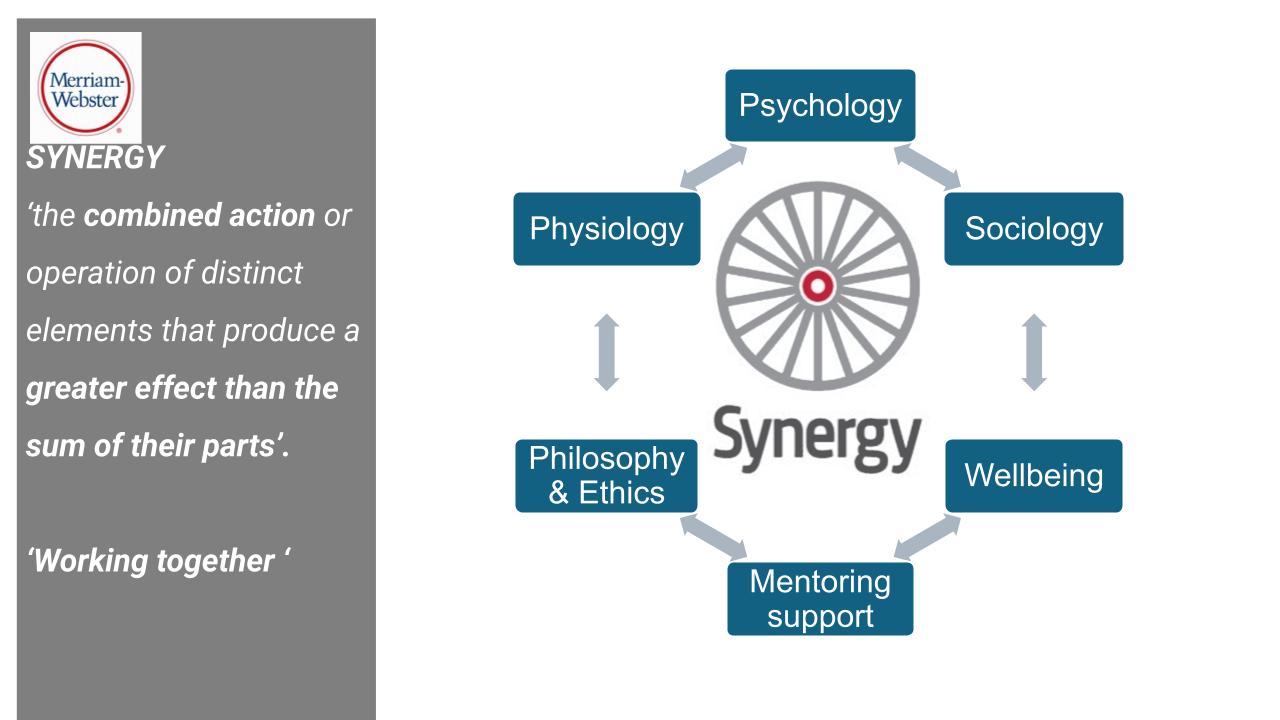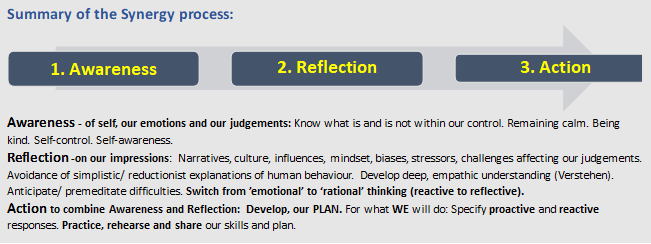The Synergy Programme
What is the Synergy programme?
Synergy is a partnership of AT-Autism, London, UK., the Laskaridis Foundation, Greece, and the National Body for Neurodiversity Scotland.
It was launched in 2014 in Greek schools in response to concerns about behaviour, stress, injury and exclusions. It was piloted in Greece, the UK, Denmark, Singapore, Malta, and Australia. Synergy is now available in the UK and internationally.
Understanding and responding to ‘behaviours of concern’, Synergy was initially about autism in schools. The programme is now applied to other settings and groups, including for adults and in mental health and homelessness services.
Synergy comprises two full-day workshops, one on reflective practive (CPD) and one on mentoring (bespoke). There is a community of practice and follow up on demand.
In 2024 Synergy was commissioned by the UK’s National Health Service (NHS).
The Synergy Approach
- A primary focus on narrative and supporter, and the culture of the setting – not ‘behaviour’ or the person.
- The development of reflective practice skills and sustain these through mentor support. Self-awareness and Reflection leading to a Plan.
- Reducing risk and stress, and building confidence.
- Building local expertise and capacity.
- Understanding the complex role and nature of trauma, stressors and influences, on our judgements, narratives and actions.
- Ethical principles allied to established scientific theory (Psychology, Sociology, Physiology).
The Synergy approach is not about:
- ‘Fixing’ behaviour or the supported person.
- Providing direct input to the supported person.
- Giving prescriptive advice or taking over the supporter’s role.
- Restrictive interventions.
Training
Synergy offers practical strategies for understanding and responding to behavioural challenges through a model of mentoring and ongoing guidance and support. It delivers this via local Synergy Mentors. The AT-Autism team trains the Synergy Mentors in practical evidence-supported techniques and approaches that develop greater refection, self-awareness and planning. The AT-Autism team visit each partner by agreement to train and support staff and review progress. AT-Autism offers ongoing support and advice via Zoom, telephone and email. The programme is in 3 parts starting with an open seminar followed by a practice workshop and mentor training workshop. Once completed, individual bespoke seminars are then available and there is an annual conference and follow up sessions where needed. Synergy Mentors each provide regular support based on the Synergy approach to designated ‘Mentor Teachers’ or ‘Mentor Practitioners’ in schools or services. Each Synergy Mentor will usually have up to five schools or services they support. Contact between the Synergy Mentor and local school or service mentor is on a regular basis. This is backed up by advice and support from AT-Autism staff.
Download the progression summary >>
For information on modules or to discuss Synergy Training with a member of the team, please click here
Evaluation
Independent evaluation by the University of the Peloponnese (Bagakis and Koulis 2023) found: –
- Settings became more inclusive – with increased capacity.
- Positive change in narrative and culture.
- Reduced stress in professionals and increased wellbeing.
- Increased professional competence, confidence, empathy, listening and communication skills.


